AI for Sustainability: ETH meets Digital Festival Zurich
Artificial Intelligence holds great promise to contribute to a more sustainable future. At the “AI for Sustainability” session at this year’s Digital Festival Zurich, the audience heard experts from ETH Zurich and industry explain how they use AI to solve global challenges. In smaller group discussions, participants could ask questions and exchange ideas.
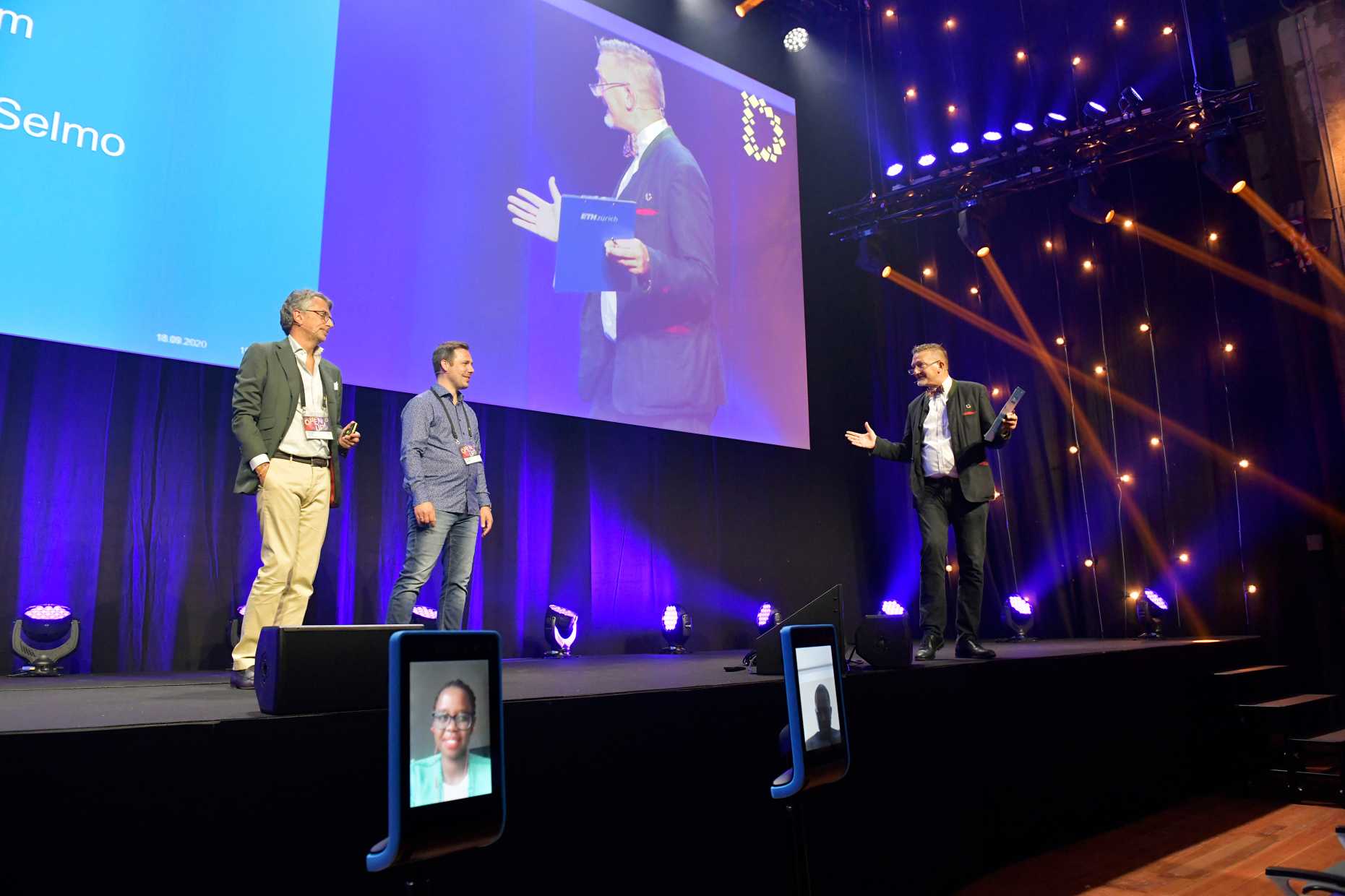
Every year the Digital Festival Zurich attracts an international crowd of digital creators and decision-makers to discuss the future of digital technologies. This year, the EcoVision Lab, World Food System Center, and ETH4D hosted a session on “AI for Sustainability” highlighting innovative artificial intelligence (AI) and machine learning projects that improve food supply chains, diagnose plant health, detect deforestation, and predict flooding disasters.
At the session on 18 September 2020 at the Schiffbau in Zurich, the audience first listened to presentations by four experts, who shared their innovative work using AI technologies.
Dr. Charity Wayua, senior research manager at IBM research Africa, presented how IBM is contributing to increase farmer productivity, reduce post-harvest losses, and mitigate the impacts of climate change on food supply chains on the African continent.
Dr. Moustapha Cisse, head of the Google AI Research Centre in Ghana and a member of the ETH4D External Advisory Board, emphasised the importance of diversifying the pool of people working on solving global challenges by building AI ecosystems across the globe. At the Google AI Research Centre in Accra, researchers use AI to diagnose crop diseases, forecast floods, and improve the understanding of populations.
Dr. Jan Dirk Wegner, head of the EcoVision Lab at ETH Zurich, and Massimo Selmo, head of Global Sourcing at the chocolate manufacturer Barry Callebaut, presented their work on jointly developing a scalable system based on satellite images and data collected from the ISS that can monitor land-use change and help to fight deforestation.
ETH meets Digital Festival Zurich: AI for Sustainability
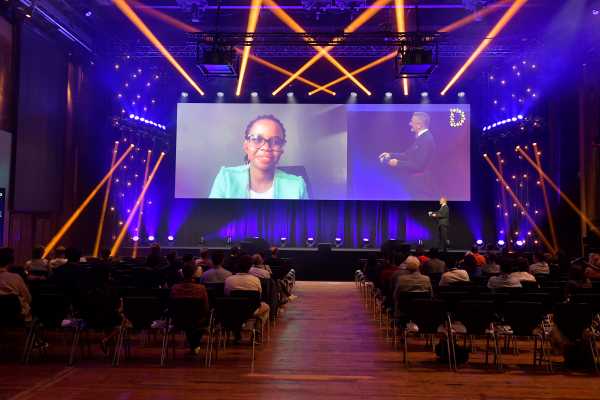 Dr. Moustapha Cisse envisions a future of shared AI knowledge (Image: ETH Zurich / Andreas Eggenberger)
Dr. Moustapha Cisse envisions a future of shared AI knowledge (Image: ETH Zurich / Andreas Eggenberger)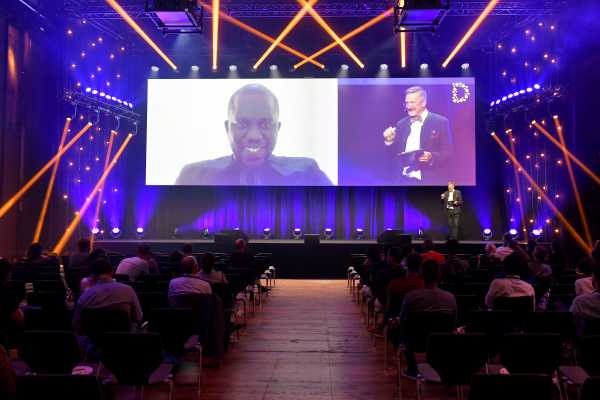 Massimo Selmo and Dr. Jan Dirk Wegner present their work on a deforestation alert tool (Image: ETH Zurich / Andreas Eggenberger)
Massimo Selmo and Dr. Jan Dirk Wegner present their work on a deforestation alert tool (Image: ETH Zurich / Andreas Eggenberger)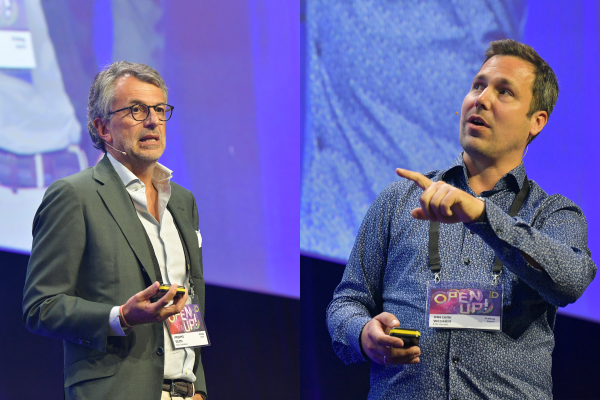 Participants exchange ideas on how to use AI for a sustainable future (Image: ETH Zurich / Andreas Eggenberger)
Participants exchange ideas on how to use AI for a sustainable future (Image: ETH Zurich / Andreas Eggenberger)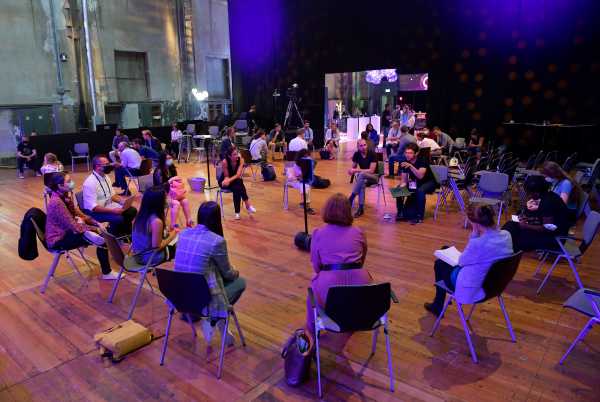 Participants discuss with Dr. Charity Wayua and Dr. Moustapha Cisse, who joined virtually (Image: ETH Zurich / Andreas Eggenberger)
Participants discuss with Dr. Charity Wayua and Dr. Moustapha Cisse, who joined virtually (Image: ETH Zurich / Andreas Eggenberger)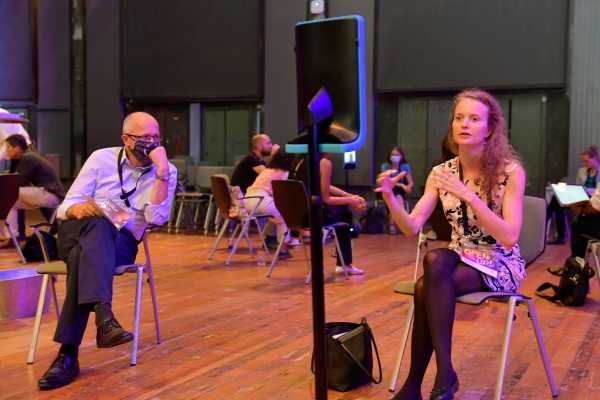
Members of the audience then had the chance to discuss their questions and ideas for a more sustainable future with the presenters in small groups. One of the highlights was the use of robots at the event, which allowed Dr. Charity Wayua and Dr. Moustapha Cisse to move independently and interact with those present. A common question from the groups was how to democratise access to technology and data so that smallholder farmers and local communities can benefit.
Dr. Jan Dirk Wegner, one of the organisers of the session, highly appreciated his time discussing in the small groups, along with Massimo Selmo: “I enjoyed mingling with a lot of different people, especially with a non-university background. I feel that a lot of ideas that will lead to a more sustainable world, in the end, are business-driven to a large extent. I hope this session encourages more companies to invest in this direction.”
We thank all presenters, moderators, and participants for making this a truly inspiring public event!
Speakers:
Dr. Charity Wayua, Head IBM Research Public Sector Kenya, IBM Research Africa
Dr. Moustapha Cisse, Head Google AI Ghana, Member ETH4D Advisory Board, Co-Founder AIMS
Dr. Jan Dirk Wegner, Head EcoVision Lab, ETH Zurich
Massimo Selmo, Head of Global Sourcing, Barry Callebaut
Moderators:
Dr. Chris Luebkeman, Head Strategic Foresight Hub, President Office ETH Zurich
Dr. Jeanne Tomaszewski, Communications Manager, World Food System Center, ETH Zurich
Dr. Adina Rom, Executive Director, ETH for Development, ETH Zurich